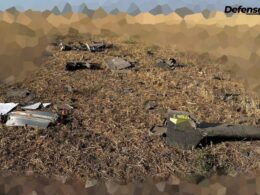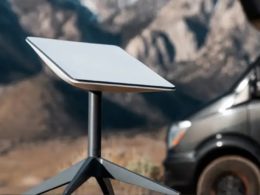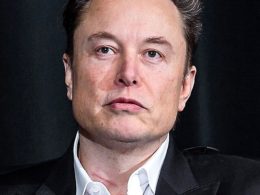Elon Musk, the CEO of electric car manufacturer Tesla and space exploration company SpaceX, secretly ordered his engineers to shut down his company's Starlink satellite communications network near the seashore of the Russian-occupied Crimea in southern Ukraine in 2022 to stop a Ukrainian drone attack on the Russian Black Sea Fleet, according to an excerpt from Walter Isaacson's biography of Elon Musk, CNN reported.
The new biography book by Walter Isaacson titled "Elon Musk" revealed Musk's "existential dread of sparking a wider war." According to Isaacson, the fear of a wider war made Elon Musk reject Ukrainian requests for Starlink systems used by the Ukrainian Army as critical battlefield communications during the full-scale Russian invasion.
Musk's attempt to limit the use of Starlink satellite communications network in occupied Crimea led to the failure of a covert Ukrainian operation to destroy Russian warships. When Ukrainian underwater kamikaze drones armed with explosives reached the Russian navy, they “lost connectivity and washed ashore harmlessly,” Isaacson wrote.
Musk's decision to shut down Starlink over the Russian-occupied Crimean Peninsula, after which Ukrainian officials "began begging him to turn on the satellites," was motivated by fear that Russia would respond to Ukraine's attack on Crimea with nuclear weapons. Such fear was reinforced by Elon Musk's conversations with senior Russian officials, according to Isaacson.
"Musk’s concerns over a 'mini-Pearl Harbor' as he put it, did not come to pass in Crimea. But the episode reveals the unique position Musk found himself in as the war in Ukraine unfolded. Whether intended or not, he had become a power broker US officials couldn’t ignore," Isaacson wrote in his book.
After Russia disrupted Ukraine’s communications systems just before its full-scale invasion on 24 February 2022, Elon Musk agreed to provide Ukraine with "millions of dollars of SpaceX-made Starlink satellite terminals," which became critical to the Ukrainian military operations. Even when Russian forces destroyed cellular phone and internet networks, the Starlink terminals allowed Ukraine to keep fighting, repel Russian invasion, and stay connected.
“How am I in this war?” Elon Musk asked Walter Isaacson. “Starlink was not meant to be involved in wars. It was so people can watch Netflix and chill and get online for school and do good peaceful things, not drone strikes.”
Elon Musk was soon contacted by US President Biden’s national security adviser, Jake Sullivan, the chairman of the Joint Chiefs of Staff, US Army General Mark Milley, and the Russian ambassador to the US. All of them tried to influence Musk's stance regarding supplying Ukraine with steady access to Starlink satellite communications network on the entire territory of Ukraine, including occupied Crimea, according to Walter Isaacson. The Russians did their best to convince Musk to deny access to Starlink terminals to the Ukrainian Army.
Meanwhile, according to Isaacson, Mykhailo Fedorov, Ukraine's Deputy Prime Minister and Minister of Digital Transformation, tried to persuade Elon Musk to restore connectivity for the Ukrainian submarine drones by telling Musk about their capabilities in a text message.
Elon Musk replied that he was impressed with the design of the submarine drones but that he would not turn satellite coverage back on for the Russian-occupied Crimean Peninsula because Ukraine “is now going too far and inviting strategic defeat,” according to Isaacson.
Elon Musk did not respond to CNN’s requests for comment.
Related:
- Musk controversy continues: Zelenskyy's staffer slams decision to restrict Starlinks in Ukrainian army
- Elon Musk's SpaceX bars Kyiv from using Starlink tech for drone control claiming it violates service terms
- Musk asks Pentagon to pick up the bill for Starlink in Ukraine
- Musk now says SpaceX will keep funding Starlink in Ukraine
- What's wrong with Elon Musk's tweet on Ukraine
- Zelenskyy invites Elon Musk to come see what Russia has done in Ukraine responding to Musk's "peace deal" proposals





